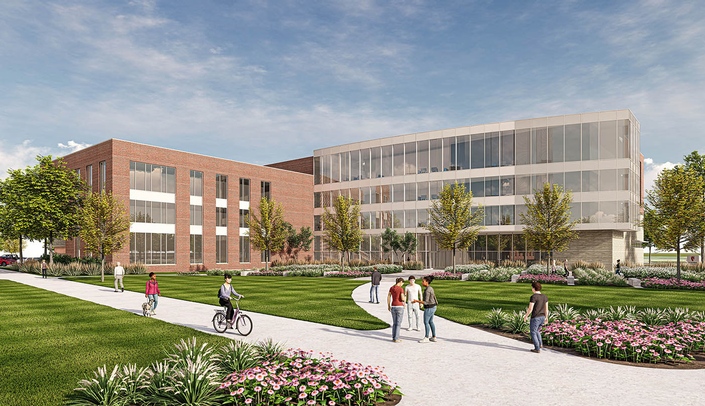Several UNMC initiatives still are being considered as the Nebraska Legislature moves through budgeting process. Senators are considering both the mid-biennial budget bills and one-time American Rescue Plan Act (ARPA) requests.
UNMC Chancellor Jeffrey P. Gold, MD, other members of the university community and several community and business leaders have testified in support of the UNMC initiatives during the legislative session.
"This is a critical time in the legislative process," said Bob Bartee, UNMC vice chancellor of external affairs. "Members of the UNMC community who wish to do so are free to contact their own state senator or other members of the legislature to express their opinions of these initiatives."
Bartee noted, however, that faculty and staff should do so on their own time and as private individuals, being careful not to use university resources, such as UNMC phones or email.
Individuals can find their state senator at the Unicameral’s official site.
See UNMC guidance on contacting members of the legislature.
Among the proposals that would affect UNMC are:
- UNMC’s educational programs in Kearney would be expanded significantly under proposed legislation. ARPA funding along with private support will provide for the construction of a new facility at the University of Nebraska at Kearney. On-going funding for new and expanded UNMC programs at Kearney would be funded separately through the mid-biennium budget process. Ultimately, the project would provide needed health care workers in rural Nebraska, improving the health and vitality of rural communities.
- Pancreas cancer research and treatment funding will provide $15 million to the Pancreatic Cancer Center of Excellence at UNMC through the Health Care Cash Fund, matching $15 million in philanthropic support. Pancreatic cancer is the fourth-leading cause of cancer deaths in Nebraska, and the bill will help UNMC convene a world-class team to diagnose and treat the disease at its earliest stages, when patients have the best chance for success.
- The behavioral health workforce of Nebraska would grow through ARPA one-time funding and a separate, ongoing request through the mid-biennium budget process. More than 95 percent of Nebraska’s counties are classified as behavioral health professional shortage areas; nearly one-third of counties, in fact, have no behavioral health professionals at all. Together, the bills would help ensure Nebraskans have access to competent, passionate behavioral health professionals, regardless of where they live.
